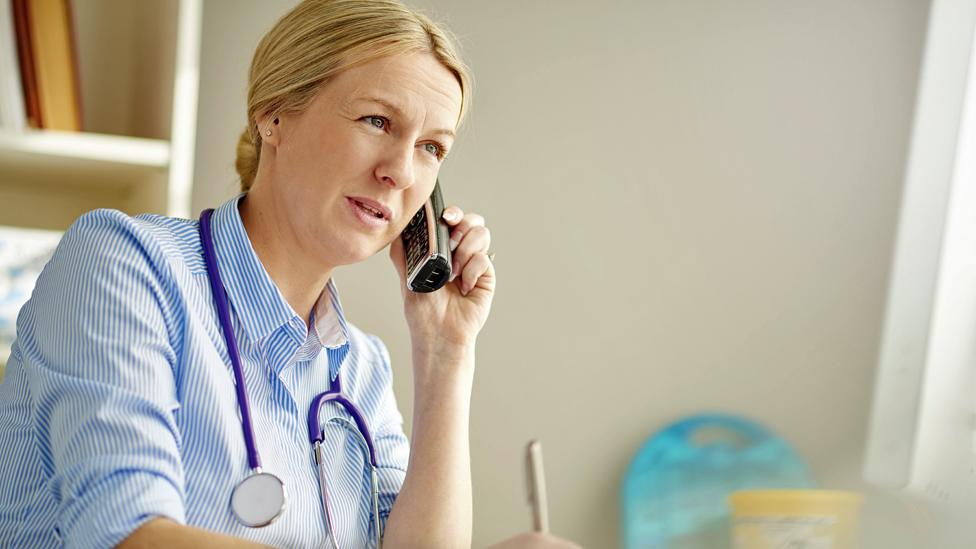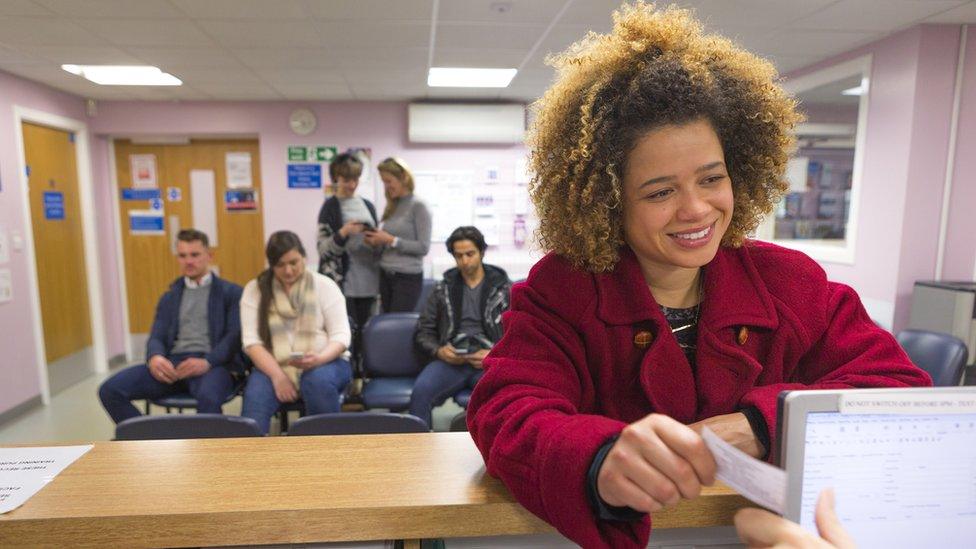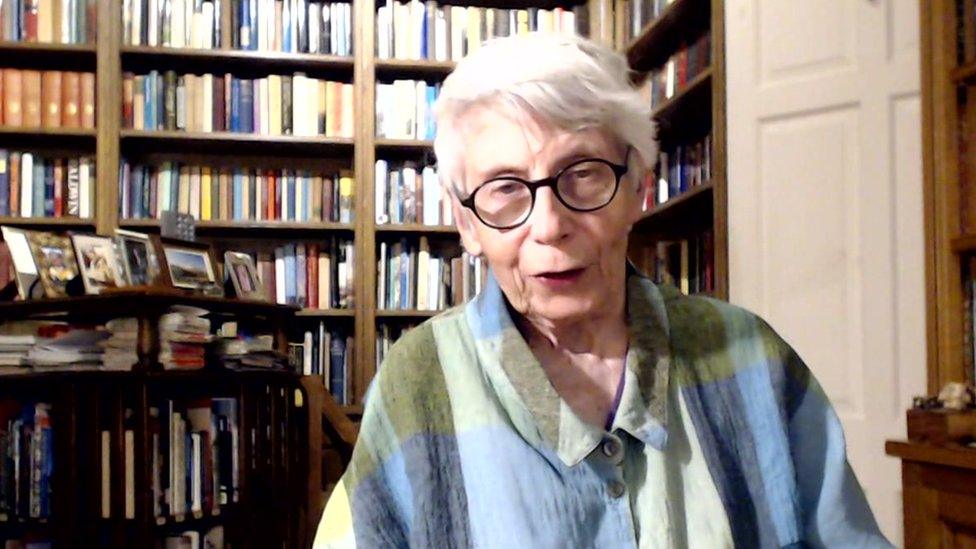More GP appointments available due to success of pilot scheme
- Published

An NHS scheme that has enabled GP practices to free up more time for doctors to see their patients is to be extended following a successful pilot.
NHS England said the Time For Care scheme, tried out at certain sites since 2016, should be in place in three-quarters of GP practices by 2022.
The scheme encourages practices to try innovations to cut bureaucracy.
In 2018, 205,157 clinical hours - equivalent to GPs having 1.2 million more appointment slots - were freed up.
NHS England said that represents close to £40m in time saved, as the average cost of an appointment is £30.
The scheme also saved 330,096 administration hours in the past year.
Dr Nikita Kanani, NHS England's medical director for primary care and a south-east London GP, said the programme has had "significant benefits for patients and GPs alike, freeing up doctors' time and NHS resources to ensure people get the care they need as quickly as possible.
"GP services will continue to be at the heart of our health service, and it makes sense to invest for another three years in a programme that is delivering so much for patients while helping us to be more efficient."

The scheme in action: one practice's story
Routine GP appointment waiting times were reduced by 47% at Pickering Medical Practice in North Yorkshire after it took part in the scheme
The surgery had an average waiting time of 19 days, which led to a greater demand for urgent appointments, as patients' conditions worsened during the time they had to wait
Staff were stressed as there were high levels of patient complaints due to the long waiting time
After a staff suggestion, patients are now offered a telephone appointment first, leading to a 12% increase in telephone appointments. This has reduced the number of patients seeing a GP face-to-face by 8%
As patients are able to get the attention of a GP sooner, the demand for urgent care consultations has fallen from 48% of the total to 37%
They also freed up GPs' time by appointing a clinical pharmacist to deal with medication tasks and recruited a new nurse practitioner to increase the number of nurse appointments available
Helena Ebbs, a GP at the practice, said she was "proud" of the changes they'd made. She said it has "had a great impact on patients" and "energised" her "enthusiasm in a time of great pressure"

The scheme now aims to cover three-quarters of GP practices by 2022.
Dr Richard Vautrey, BMA GP committee chairman, said the extension of the scheme was "welcome" as there was potential for the scheme to go much further "with practices considering safe, effective automation within their systems in order to free up staff time and release time for care".
But he said "much more needs to be done to reduce the day-to-day pressures on practices so that we can make general practice a positive environment for all staff to work in.
"Unsustainable workload pressures have been the number one concern for many GPs and their practice teams in recent years, and have been a main cause of the recruitment and retention crisis in general practice."
In January NHS bosses unveiled a new 10-year plan focusing on prevention and early detection.
GPs, mental health and community care will get the biggest funding increases to shift the focus away from hospitals.

Phone consultations with patients can free up more face-to-face appointments
Professor Helen Stokes-Lampard, chairwoman of the Royal College of GPs, said: "NHS England's evaluation of the Time for Care programme suggests it is making a real difference to some GP practices, and it is reassuring to know that NHS England are listening to our concerns about GP workload and taking action to help tackle this.
"However, most of our hard-working, hard-pressed GPs will still tell a different story of working longer and longer hours and seeing more patients per day to try and cope with demand, which continues to increase in both volume and complexity.
"The impact of Time for Care has to be seen as just one part of a much bigger solution that is needed."
She said the investment announced in the recent NHS long-term plan and GP contract framework will take time to be felt on the ground.
"We are pleased to have more trainees in general practice than ever before, but this trend must be sustained and built upon, as well as continued urgent action to boost the GP workforce in the short term. It is essential that the forthcoming workforce implementation plan launches effective strategies to boost the pipeline of GPs, protects and supports those who are struggling, and has robust solutions to expand the wider practice team - and that all this is properly funded."
- Published28 January 2019

- Published19 January 2019

- Published7 January 2019

- Published7 January 2019
- Published2 January 2019

- Published21 December 2018

- Published6 October 2018

- Published29 June 2018

- Published6 November 2017